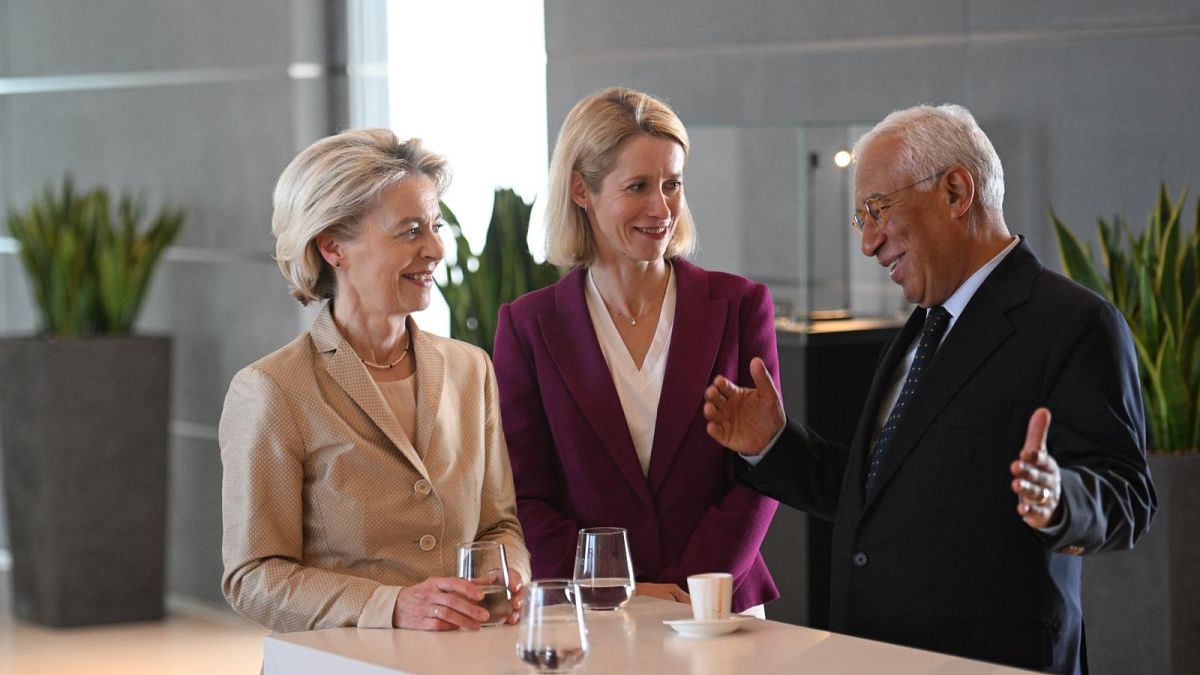For the first time a politician from the south of the European Union will take over the presidency of the European Council.
“I fully understand the Italian Prime Minister’s vote, which has been explained publicly. I will work closely with Giorgia Meloni, as I will with the other 26 EU leaders,” António Costa told journalists on Friday at the headquarters of the Party of European Socialists in Brussels.
Italy’s prime minister had made clear her displeasure at being excluded from preparatory talks with a small group of leaders who divvied up the top jobs. Her nationalist European Conservatives and Reformists group emerged as the third force in the EU parliament elections earlier this month.
Meloni also voted against Estonia’s Kallas becoming the EU’s foreign policy chief, two sources close to the discussions told The Associated Press on condition of anonymity. Meloni abstained on von der Leyen for European Commission president, the same sources confirmed. The officials requested anonymity in line with EU practice.
In a post on X, Meloni said the way that mainstream parties put forward the trio “is wrong in method and substance. I decided not to support it out of respect for the citizens and the indications that came from those citizens during the elections.”
Costa said he considered Meloni’s vote against him vote normal because the “European Council is not an association of bureaucrats, but of politicians who have their political orientations and vote according to them.”
In December he will have gone from resigning as Portugal’s prime minister in the wake of a judicial scandal to becoming president of the European Council in little more than a year.
And for the first time, a politician from the south of the European Union will take over the presidency of the European Council, an institution that Costa knows well, having served as head of government there for almost a decade.
Cabinet in preparation
The president-elect said he has already had meetings with the secretary-general of the Council of Europe and the current president, Charles Michel, and that he will organise the cabinet soon.
A lawyer by training, Costa has been involved in politics since the age of 14, will oversee the meetings of the 27 leaders at a time of great challenges in terms of the transition of the economic paradigm and geopolitical positioning.
“There is a great effort that needs to be made and, despite the political differences between governments and the countries’ levels of development, we have to be able to make decisions together,” he said.
Costa, 62, is the son of a communist writer with roots in Goa, Portugal’s former colony in India, and a journalist and women’s rights campaigner. Seen as pragmatic and determined, he intends to maintain this attitude.
“The president of the European Council must place himself above political families and be aware that the 27 heads of government and state have equal rights and deserve equal respect. I will work and help to form consensus by qualified majority and, where possible, by consensus, without any veto,” he stated.

